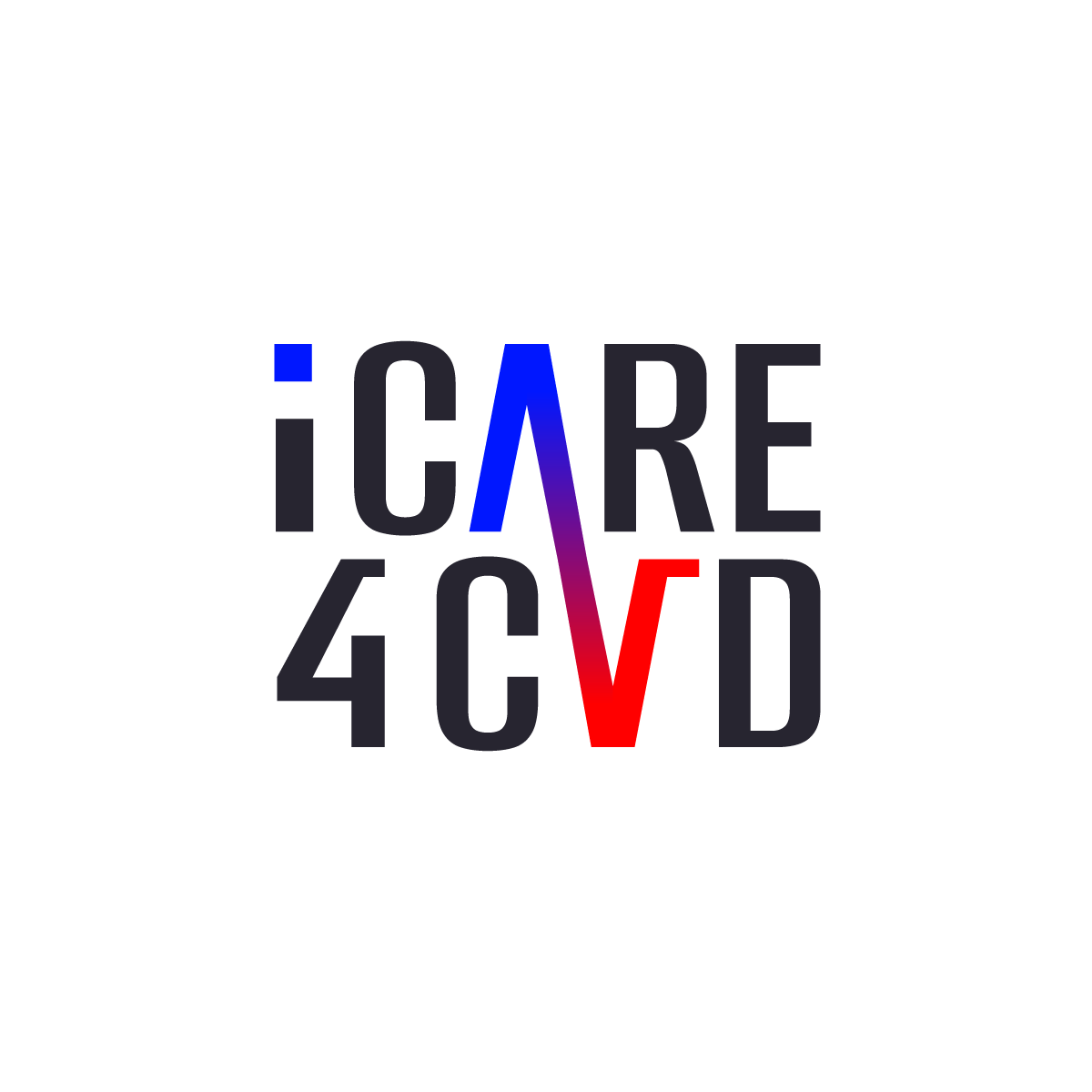Summary
Cardiovascular diseases (CVD) are one of the leading causes of death worldwide; they affect 85 million people in Europe alone, and cases are rising due to unhealthy lifestyles and our ageing population. Despite advances in treatment, many people with cardiovascular diseases eventually develop chronic heart failure, which has a five-year mortality rate of 20 to 50 %.
Efforts to reduce the numbers of people affected by and dying from cardiovascular diseases are hampered by a number of issues. These include our incomplete understanding of how risk factors (such as diabetes and high blood pressure) influence who will develop CVD and how the disease progresses. Another challenge is the current ‘one size fits all’ approach to treating patients.
We urgently need a better understanding of CVD so that we can deliver more personalised treatments for patients, and that’s where iCARE4CVD comes in. The project aims to improve patient care across the board, starting from those at risk of developing CVD to those with advanced disease. To allow a more personalised approach to patient care, biomarkers will be used to assign those diagnosed to clinically-meaningful subgroups – this will make it easier to pick up on which patients are in most urgent need of treatment. Moreover, tools based on artificial intelligence (AI) will make it possible to predict how individual patients will respond to different treatments. Part of the project will focus specifically on people with type 1 diabetes, who are at risk of developing CVD.
The project will achieve this by gathering data on over 1 million patients from existing cohorts and providing anonymous access to the data via a blockchain-supported federated database. The project will develop AI-based models to identify different subgroups of patients and the best treatments for them. These models will be validated in large cohorts and a prospective intervention trial. Patients will be closely involved in iCARE4CVD to ensure that the project’s results meet their needs.
Ultimately, the results of iCARE4CVD will help to prevent and treat cases of CVDs, improving people’s lives and reducing the strain on healthcare systems.
Participants
Show participants on mapUniversities, research organisations, public bodies, non-profit groups
- Academisch Ziekenhuis Groningen, Groningen, Netherlands
- Academisch Ziekenhuis Leiden, Leiden, Netherlands
- Charite - Universitaetsmedizin Berlin, Berlin, Germany
- Erasmus Universitair Medisch Centrum Rotterdam, Rotterdam, Netherlands
- Fondation Francophone Pour La Recherche S.R.L. Diabete, Paris, France
- Fondazione Human Technopole, Milano, Italy
- Institut National De La Sante Et De La Recherche Medicale, Paris, France
- Istituto Di Ricerche Farmacologiche Mario Negri, Milano, Italy
- Medizinische Universitaet Wien, Vienna, Austria
- Nederlandse Organisatie Voor Toegepast Natuurwetenschappelijk Onderzoek Tno, Den Haag, Netherlands
- SIB Institut Suisse De Bioinformatique, CH-660-0733998-3, Genève, Switzerland
- Stichting Imec Nederland, Eindhoven, Netherlands
- The Queen'S University Of Belfast, Belfast, United Kingdom
- Thomas More Kempen Vzw, Geel, Belgium
- Universitaetsklinikum Aachen, Aachen, Germany
- Universiteit Maastricht, Maastricht, Netherlands
- University College Dublin, National University Of Ireland, Dublin, Dublin, Ireland
- University Of Glasgow, Glasgow, United Kingdom
Small and medium-sized enterprises (SMEs) and mid-sized companies (<€500 m turnover)
- Catalyze B.V., Amsterdam-Duivendrecht, Netherlands
- Deutsche Stiftung Fur Chronisch Kranke / German Foundation For The Chronically Ill, Furth, Germany
- Orbital Media And Advertising Limited, Stowmarket, United Kingdom
- Wig2 GMBH, Leipzig, Germany
Third parties
- Bayer Healthcare Llc, Whippany, United States
- Bayer Healthcare SAS, Loos, France
IHI industry partners
- Amgen, Brussels, Belgium
- Astrazeneca AB, Södertälje, Sweden
- Bayer Aktiengesellschaft, Leverkusen, Germany
- Dq Technologies AG, Zurich, Switzerland
- Eli Lilly And Company, Indianapolis, United States
- Eli Lilly Export SA, Vernier, Switzerland
- Evotec International GMBH, Hamburg, Germany
- F. Hoffmann-La Roche AG, Basel, Switzerland
- Huawei Technologies France, Boulogne-Billancourt, France
- Lilly Deutschland GmbH, Bad Homburg, Germany
- Novo Nordisk A/S, Bagsvaerd, Denmark
- Philips Medical Systems Nederland BV, Best, Netherlands
Contributing partners
- Breakthrough T1d, New York, United States
| Participants | |
|---|---|
| Name | EU funding in € |
| Academisch Ziekenhuis Groningen | 703 125 |
| Academisch Ziekenhuis Leiden | 312 827 |
| Catalyze B.V. | 520 625 |
| Charite - Universitaetsmedizin Berlin | 298 743 |
| Deutsche Stiftung Fur Chronisch Kranke / German Foundation For The Chronically Ill | 493 450 |
| Erasmus Universitair Medisch Centrum Rotterdam | 321 875 |
| Fondazione Human Technopole | 463 729 |
| Institut National De La Sante Et De La Recherche Medicale | 150 000 |
| Istituto Di Ricerche Farmacologiche Mario Negri | 493 117 |
| Medizinische Universitaet Wien | 293 548 |
| Nederlandse Organisatie Voor Toegepast Natuurwetenschappelijk Onderzoek Tno | 551 560 |
| Stichting Imec Nederland | 330 625 |
| Thomas More Kempen Vzw | 901 938 |
| Universitaetsklinikum Aachen | 996 875 |
| Universiteit Maastricht | 2 482 138 |
| University College Dublin, National University Of Ireland, Dublin | 326 721 |
| Wig2 GMBH | 301 563 |
| Total Cost | 9 942 459 |
